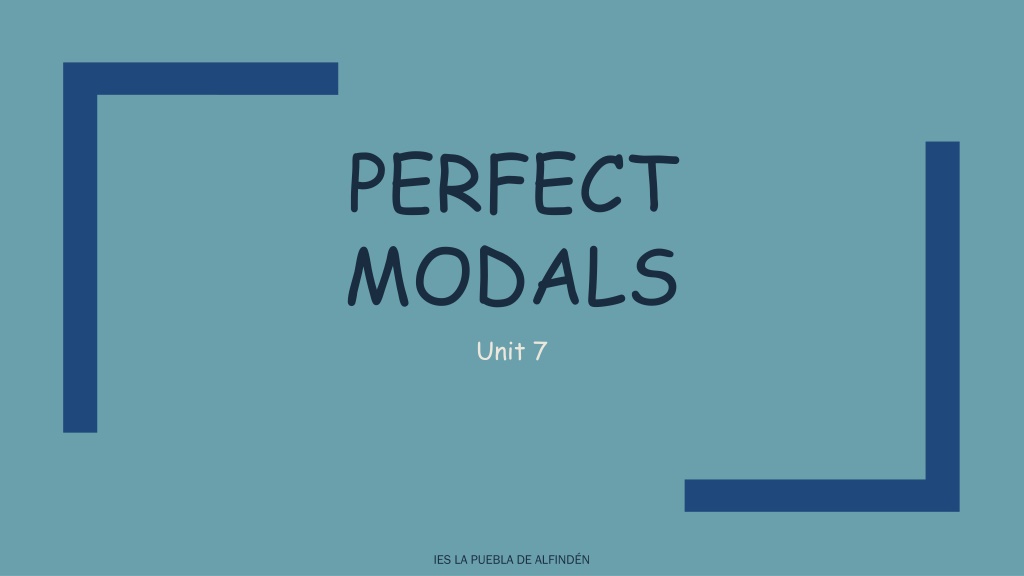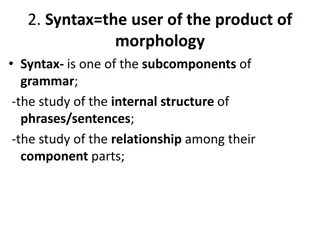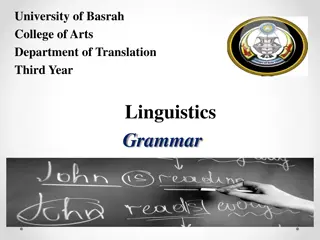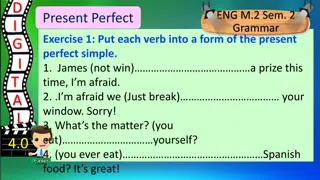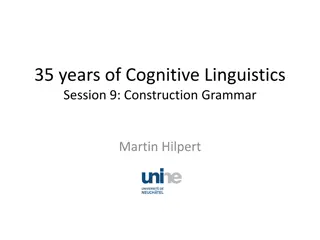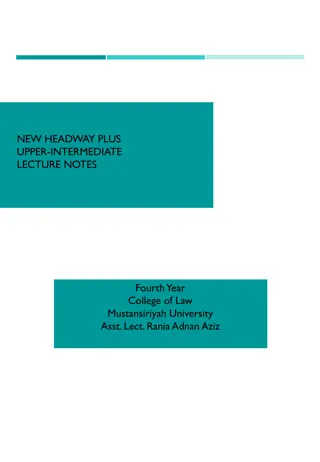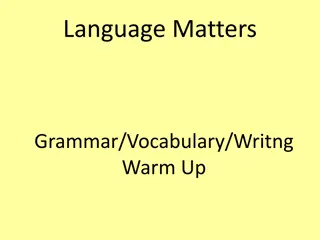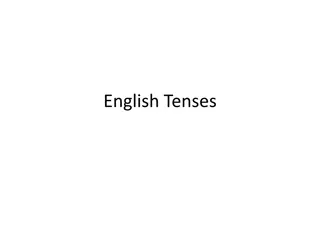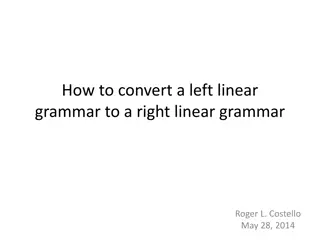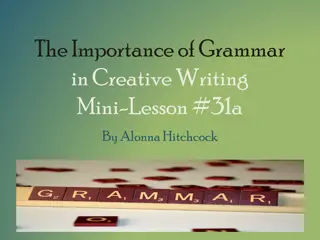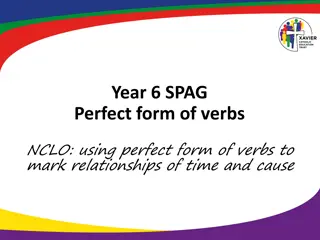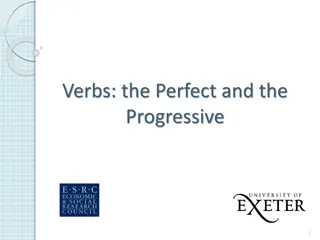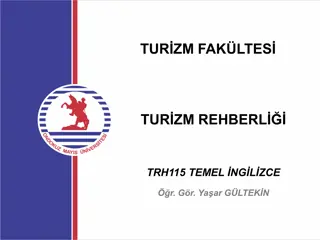Perfect Modals in Grammar
This content delves into the use of perfect modals in English grammar, covering the forms of have + past participle, must, may/might, could, should, and can't/couldn't have in various contexts. Examples are provided to illustrate how these modal verbs express logical conclusions, assumptions, abilities, criticism, regrets, and certainty regarding past events.
Download Presentation

Please find below an Image/Link to download the presentation.
The content on the website is provided AS IS for your information and personal use only. It may not be sold, licensed, or shared on other websites without obtaining consent from the author.If you encounter any issues during the download, it is possible that the publisher has removed the file from their server.
You are allowed to download the files provided on this website for personal or commercial use, subject to the condition that they are used lawfully. All files are the property of their respective owners.
The content on the website is provided AS IS for your information and personal use only. It may not be sold, licensed, or shared on other websites without obtaining consent from the author.
E N D
Presentation Transcript
PERFECT MODALS Unit 7 IES LA PUEBLA DE ALFIND N
PERFECT MODALS: FORM HAVE +PAST PARTICIPLE MUST MAY/MIGHT COULD SHOULD CAN T/COULDN T MODAL VERB + HAVE + PAST PARTICIPLE IES LA PUEBLA DE ALFIND N
PERFECT MODALS : 1. MUST HAVE +PAST PARTICIPLE MUST HAVE + PAST PARTICIPLE: WE USE IT TO EXPRESS A LOGICAL CONCLUSION OF A PAST EVENT. He MUST HAVE BEEN upset when he learned about the murder. IES LA PUEBLA DE ALFIND N
PERFECT MODALS : 2.MAY/MIGHT HAVE +PAST PARTICIPLE MAY / MIGHT HAVE + PAST PARTICIPLE: WE USE THEM TO MAKE AN ASSUMPTION OF A PAST EVENT AND TO EXPRESS THE POSSIBILITY THAT SOMETHING WAS TRUE. She can t find her phone. She MAY/MIGHT HAVE LEFT it in the restaurant. Her wallet is missing. Someone MAY/MIGHT HAVE STOLEN it. IES LA PUEBLA DE ALFIND N
PERFECT MODALS : 3. COULD HAVE + PAST PARTICIPLE COULD HAVE + PAST PARTICIPLE: WE USE IT TO INDICATE THAT SOMEONE HAD THE ABILITY OR POSSIBILITY TO DO SOMETHING IN THE PAST BUT DIDN T DO IT AND TO EXPRESS THE POSSIBILITY THAT SOMETHING WAS TRUE. They COULD HAVE DISCOVERED the truth, but they didn t try. He COULD HAVE LOST his way. IES LA PUEBLA DE ALFIND N
PERFECT MODALS : 4.SHOULD HAVE+ PAST PARTICIPLE SHOULD HAVE + PAST PARTICIPLE: WE USE IT TO CRITICISE SOMETHING THAT HAS ALREADY HAPPENED OR TO REGRET THAT WHAT WAS EXPECTED DIDN T HAPPEN. You SHOULD HAVE LOOKED INTO the situation. I SHOULD HAVE GONE with you. IES LA PUEBLA DE ALFIND N
PERFECT MODALS : 5.CAN T/COULDN T HAVE + PAST PARTICIPLE CAN T/COULDN T HAVE + PAST PARTICIPLE: WE USE THEM WHEN WE FEEL SURE THAT SOMETHING WAS NOT POSSIBLE. You CAN T/COULDN T HAVE SEEN a tiger. There are no tigers in this area. IES LA PUEBLA DE ALFIND N
